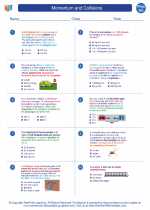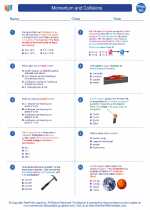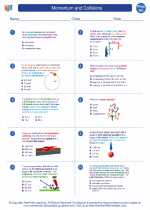Maintenance in Physics
Maintenance in physics refers to the process of keeping systems, equipment, and machinery in proper working condition. This involves regular inspection, cleaning, repair, and replacement of components to ensure that the systems function efficiently and safely.
Importance of Maintenance
Proper maintenance is crucial in physics for the following reasons:
- Efficiency: Regular maintenance ensures that systems operate at their optimal performance, leading to efficient energy use and minimal wastage.
- Safety: Well-maintained equipment reduces the risk of accidents and malfunctions, promoting a safe working environment.
- Cost-Effectiveness: Timely maintenance can prevent major breakdowns and costly repairs, saving both time and money in the long run.
- Durability: Proper maintenance extends the lifespan of equipment, reducing the need for frequent replacements.
Maintenance Techniques
There are several techniques used in physics for maintenance:
- Preventive Maintenance: This involves scheduled inspections and routine tasks to prevent equipment failure.
- Predictive Maintenance: Utilizing tools and techniques to predict when maintenance should be performed based on the condition of the equipment.
- Corrective Maintenance: Repairing or replacing faulty components after a breakdown or malfunction has occurred.
- Proactive Maintenance: Identifying and addressing potential issues before they lead to equipment failure.
Study Guide for Maintenance in Physics
When studying maintenance in physics, it is important to understand the following concepts:
- Definition and importance of maintenance in physics
- Types of maintenance techniques
- Examples of maintenance practices in different physics applications (e.g., electrical systems, mechanical systems, etc.)
- The impact of maintenance on energy efficiency, safety, and cost-effectiveness
- The role of maintenance in extending the lifespan of equipment
Students should also be familiar with real-world examples of maintenance in various fields of physics, such as maintaining electrical circuits, HVAC systems, laboratory equipment, and more. Understanding the principles of maintenance will prepare students for practical applications in the field of physics and engineering.
By mastering the concept of maintenance in physics, students will develop a fundamental understanding of how to ensure the reliability, safety, and efficiency of systems, which are essential skills for any future career in physics or related fields.
.◂Physics Worksheets and Study Guides High School. Momentum and Collisions

 Worksheet/Answer key
Worksheet/Answer key
 Worksheet/Answer key
Worksheet/Answer key
